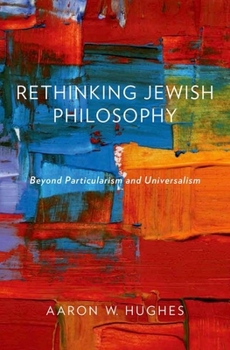Rethinking Jewish Philosophy: Beyond Particularism and Universalism
Select Format
Select Condition 
Book Overview
Jewish thought is, in many ways, a paradox. Is it theology or is it philosophy? Does it use universal methods to articulate Judaism's particularity or does it justify Judaism's particularity with appeals to illuminating the universal? These two sets of claims are difficult if not impossible to reconcile, and their tension reverberates throughout the length and breadth of Jewish philosophical writing, from Saadya Gaon in the ninth century to Emmanuel...
Format:Hardcover
Language:English
ISBN:0199356815
ISBN13:9780199356812
Release Date:February 2014
Publisher:OUP Us
Length:192 Pages
Weight:0.85 lbs.
Dimensions:0.9" x 6.3" x 9.3"
Customer Reviews
0 rating





